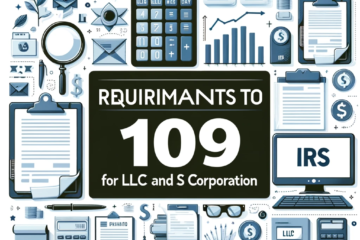In the world of business structures, the contrast between a sole proprietorship and single-member LLC (Limited Liability Company) holds pivotal significance.
This comprehensive guide delves into the nuances of these corporate entities, unwrapping their advantages and disadvantages, while highlighting the diverse aspects that set them apart.
This informative discourse aims to provide you with an in-depth understanding of sole proprietorship and single-member LLC, assisting your journey towards making the most suitable choice for starting a business.
Choosing between a sole proprietorship vs a single-member LLC involves trade-offs. Single-member LLCs offer liability protection and versatile taxation, while sole proprietorships are simpler to establish. Each has distinct advantages: pass-through taxation for single-member LLCs, and ease of formation for sole proprietorships. However, the decision hinges on factors like liability, taxation, and capital access. Expert advice is vital for making an informed choice.
Single-Member Limited Liability Company: Shielding Your Ventures
Exploring Single-Member LLCs
A single-member limited liability company, often abbreviated as SMLLC, emerges as a compelling alternative to a sole proprietorship, particularly for small-scale enterprises.
These enterprises often inadvertently default into a sole proprietorship due to oversight or failure to register with the state. The SMLLC, while bearing resemblance to a conventional limited liability company (LLC), boasts a distinctive feature – it consists of a single member.
The Shielding Veil of SMLLCs
One of the most persuasive advantages of an SMLLC is the division it establishes between the business and the owner. This legal demarcation extends a protective shield to the owner, guarding them against the liabilities, obligations, and tax encumbrances of the business.
Moreover, an SMLLC offers tax flexibility, allowing it to be taxed as a corporation or a disregarded entity. In the latter case, income flows directly to the owner, subjecting it to taxation similar to regular income.
SMLLCs and Self-Employment Tax
In the eyes of the government, the owner of an SMLLC is deemed self-employed. As a result, the income directed towards the owner is categorized as a distribution, distinct from a salary or wage.
This classification subjects the owner to the self-employment tax, encompassing Medicare tax and FICA contributions.
Advantages and Disadvantages: Balancing the Scales
The Pros and Cons of LLCs and SMLLCs
Both LLCs and SMLLCs present a plethora of merits and drawbacks:
Advantages:
- Pass-Through Taxation: SMLLCs embrace pass-through taxation, directing profits to members responsible for reporting these gains on their personal tax returns.
- Federal Business Tax Exemption: SMLLCs are exempt from federal business taxes, and most states do not impose business taxes on them.
- LLCs’ Informal Nature: In comparison to corporations, which necessitate the designation of a board of directors and shareholders with legal obligations, LLCs maintain a more informal disposition.
Disadvantages:
- LLCs’ Informality and Limited Capital Accessibility: The relaxed nature of LLCs might impede access to credit, capital raising, and business valuation, unlike corporations.
- Sole Proprietorships’ Limited Venture Capital and Scope: Sole proprietorships face limitations in terms of venture capital and lifespan, ceasing upon business discontinuation or the owner’s demise.
Sole Proprietorship: Your Solo Expedition into Business
Navigating the Terrain of Sole Proprietorship
In a sole proprietorship, a single individual assumes ownership of all business assets and liabilities. This uncomplicated structure obviates the necessity for intricate filing procedures.
The essence of compliance lies in adhering to federal, state, and local taxation regulations, rendering it a straightforward avenue to start an LLC.
Transient Nature and Liability of Sole Proprietorship
Sole proprietorships, while straightforward to establish, exhibit transience. Should the owner become incapacitated, retire, or pass away, the sole proprietorship dissolves, mandating the creation of a new entity for business continuation.
Furthermore, these entities evade annual reporting requirements, rendering them a popular choice due to their simplicity.
Pros and Cons of Sole Proprietorships
Advantages:
- Ease of Formation and Low Costs: Sole proprietorships demand minimal fees and contractual formalities, making them an economical and facile choice.
- Self-Employment Flexibility: Ideal for individuals yearning to be their own boss and embark on an entrepreneurial journey.
Disadvantages:
- Blurry Separation between Owner and Business: Courts often blur the distinction between business and the owner, implying a shared legal identity.
- Potential Insurance Expenses: Insurance coverage might be costlier for sole proprietors.
- Capital Limitations: Sole proprietorships encounter hurdles in raising venture capital and are limited in business scope and duration.
A Comprehensive Comparison: Sole Proprietorship vs. Single Member LLC
Weighing Advantages and Disadvantages
While both sole proprietorships and SMLLCs possess their unique merits and drawbacks, the dichotomy between them remains significant:
- Sole proprietorships offer simplicity but lack the protective layers and taxation versatility provided by SMLLCs.
- Taxation for sole proprietors involves personal income tax filing, whereas SMLLCs face corporate taxation post-business deductions.
- Sole proprietors bear complete liability, while SMLLC members are sheltered from certain liabilities.
- SMLLCs have the upper hand in raising capital through investments and sharing ownership, through a small business administration loan for the sole proprietor..
- Tax consequences differ, with sole proprietors possibly facing elevated tax brackets based on household income.
Navigating Liability Protection for SMLLC Owners
Diverging from sole proprietorships, wherein the owner and the business intertwine, an SMLLC establishes separation. Despite this division, SMLLC owners are liable if they personally vouch for financing agreements.
Maintaining clear documentation of the SMLLC’s involvement in contracts is crucial to avert personal liability.
Enhanced Loss Basis with SMLLCs
Before the advent of the LLC entity, mitigating personal liability in a sole proprietorship necessitated creating an S corporation.
These came with limitations on loss deductions. The introduction of LLCs fuses the favorable tax basis of a sole proprietorship with the limited liability shield inherent to an S corporation.
Conclusion
When laying the groundwork for your business, careful consideration of its structure is paramount. Expert advice from legal and accounting professionals is invaluable. Factors such as personal liability tolerance, reporting preferences, and capital requirements should be harmonized with the structure you choose. This journey culminates in a strategic decision that paves the way for the success of your business.
Frequently Asked Questions (FAQs)
1. Can SMLLC Owners Deduct Business Expenses on Personal Tax Returns?
Yes, SMLLC owners can claim business expense deductions on personal returns, in adherence to treasury regulations. These deductions encompass employment taxes linked to SMLLC activities.
2. Must SMLLCs File an IRS Election for Disregarded Entity Taxation?
No, SMLLCs opting for disregarded entity taxation are exempt from filing Form 8832. They are automatically treated as separate entities if they possess a sole owner and abstain from elections.
3. Is a Federal Tax Identification Number (TIN) Mandatory for SMLLCs?
SMLLCs without employees can use their social security number, while those with employees must acquire a distinct TIN. This facilitates tax filing and payment for employees.
4. Can an LLC with Spousal Owners Qualify as an SMLLC?
In specific scenarios, an LLC comprised of a husband and wife can qualify as an SMLLC, dependent on factors such as the election of a disregarded entity status and compliance with state law.

Murphy Brad, is a legal content writer with expertise in environmental law, criminal law, and business associations. She holds a Juris Doctorate from William & Mary Law School and is licensed to practice in Tennessee. Murphy has taught legal research, writing, and citations to law students and has contributed to the Environmental Law & Policy Review. With a background in philosophy and political science, Murphy brings a well-rounded perspective to her legal writing projects.



